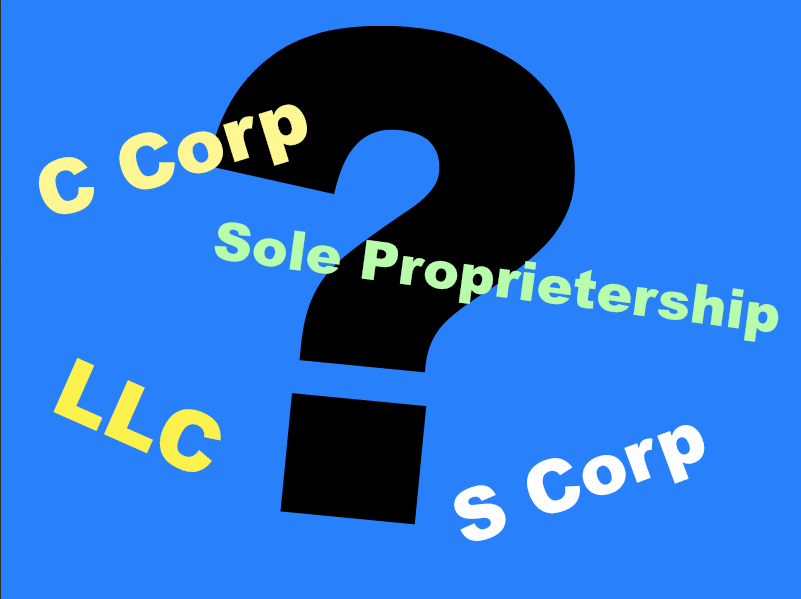A startup’s legal entity directly impacts its success. Thus, entrepreneurs need to learn how to choose the right legal entity for their businesses. Common entities include limited liability company (LLC), sole proprietorship and corporation. However, many entrepreneurs also form partnerships. Several aspiring business owners take a more charitable approach and start B Corporations as well. With so many options, entrepreneurs struggle to select the best structures for their new companies. Continue reading to learn the main things to think about when choosing a legal entity for your business.
Table of Contents
Tax Consequences
Consider the tax consequences when choosing a legal entity for your business. Each entity type offers different tax benefits and implications. For instance, a sole proprietorship pays tax on all of their profits. Business owners report their business income and expenses on personal tax returns. In contrast, several corporations pay corporate income tax on their profits. However, some corporations pay shareholders dividends. These businesses need to include the dividends in their personal returns. Entrepreneurs typically refer to this taxation structure as a “double taxation system”. LLCs with one owner undergo the same taxation process as a sole proprietorship. Those with more than one owner get taxed as partnerships. Keep these differences in mind to choose the best legal entity for your business.
Legal Liability
Next, pay attention to the legal liability differences between business structures as well. Several entrepreneurs struggle with their personal finances because of legal liabilities. They take on personal liability for business losses. When a business owner is personally liable, they put their own assets at risk. These personal assets typically include homes, cars and personal capital. Fortunately, you can compare a business entity with alternatives that lower personal liabilities. Many entrepreneurs choose the limited liability company (LLC) structure because of the lower risks. Moreover, a corporation’s structure offers personal asset protection as well. Think about liability when selecting a legal entity for your business.
Preferred Industry
Additionally, think about the industry you want to enter. Certain business entities work better for specific industries such as real estate, health care or media. Some industries require companies to conduct particular practices. Many markets also enforce several state requirements. You can only meet these requirements and complete the demanded practices properly under the right entity structure. Entrepreneurs usually choose the partnership structure when launching companies that offer professional services. This structure offers the flexibility needed to profit off of selling services. Other entity types only work well for selling products. Review the requirements needed to enter your preferred industry. Then, you can choose the best legal entity for your business.
Public Information
Entrepreneurs also need to consider the amount of public information they want to provide. Certain entity types require you to offer more financial information to the public than others. For example, corporations give the state more confidential information than limited liability companies do. When the state receives a corporation’s data, they open it to the public. Thus, entrepreneurs looking to maintain a high level of confidentiality should not choose a corporation structure. Review the various public information protocols for each legal entity so you can choose the best option for your business.
Level Of Control
Finally, think about the level of control that each legal entity offers business owners. Many entrepreneurs prefer to maintain full control over their companies. They want to make sales decisions and monitor all operational activities. If you fall under this category, consider starting a sole proprietorship or a limited liability company. These entity structures provide business owners with full power over their brands. On the other hand, corporations offer owners a limited amount of control. They function with boards of directors. Every corporation’s board makes major decisions on behalf of the entire company. They particularly come into play as businesses grow. Thus, it is not the best option for entrepreneurs who want to remain in command throughout their companies’ lifespans. Consider this factor when choosing a legal entity for your brand.
Several entrepreneurs struggle to determine the best legal entities for their businesses. To ensure that you select the best option, review the tax benefits and implications associated with each entity type. Then, familiarize yourself with the level of personal liability risks that comes with each business structure. Your preferred industry also directly impacts your legal entity decision. Each industry follows different state guidelines. Moreover, the amount of required public information differs between business entity types. In addition to these considerations, determine the level of control you wish to maintain over your business’s life cycle. Think about these things when choosing a legal entity for your business.










